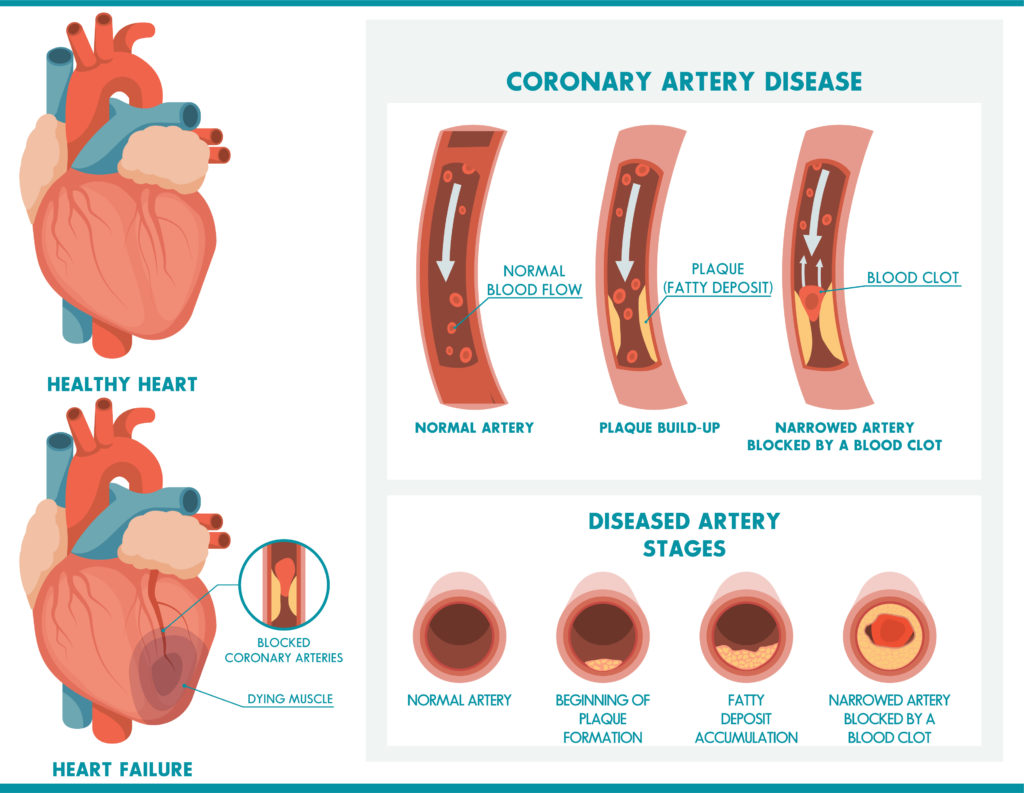FabOverFifty collaborated with St. Joseph® Low Dose Aspirin to create this post. All insights and opinions are our own.
Please meet three close friends whom I’ve known for many years. I’ve changed their names, but these are their real stories as they’ve told me (and allowed me to share with you!).
 Hannah, a divorced 55-year-old bookkeeper and writer, is slender, fit, and active. She occasionally enjoys a glass of wine, doesn’t smoke, and religiously watches her diet. Her blood pressure is normal, her cholesterol numbers are ideal, and her doctor’s examination and full panel blood test results confirmed that she’s in tip-top shape. Her family has no history of cardiovascular disease.
Hannah, a divorced 55-year-old bookkeeper and writer, is slender, fit, and active. She occasionally enjoys a glass of wine, doesn’t smoke, and religiously watches her diet. Her blood pressure is normal, her cholesterol numbers are ideal, and her doctor’s examination and full panel blood test results confirmed that she’s in tip-top shape. Her family has no history of cardiovascular disease.
Rochelle, a married 69-year-old retired dietician, was 20 pounds overweight, with high blood pressure and dangerous cholesterol levels. Although a scan revealed mild plaque in one of her carotid arteries, Rochelle hasn’t exhibited any symptoms of a stroke. (Note: Plaque consists of fat, cholesterol, calcium, and other substances found in the blood that can build up, harden and narrow your arteries over time, Carotid arteries are the major blood vessels in the neck that supply blood to the brain, neck and face). Rochelle’s paternal and maternal grandfathers died of heart attacks at 66 and at 82. Rochelle recently lost about 20 pounds and she’s taking statins to regulate her cholesterol as well as blood pressure medication. She tries to walk vigorously at least three times a week, but isn’t an exercise enthusiast otherwise. She doesn’t drink or smoke.
Penny, a single 73-year-old manger in the education field, survived a major heart attack in late 2018 that prevented her from going to work for months. Although she was much heavier decades ago, she’d kept off most of the 50+ pounds she lost years before the attack. Penny’s blood pressure and cholesterol were also under control before the heart attack. She used to be a great fan of wine, but not of exercise. Her mother and father did not die of cardiovascular disease.
My story is similar to Rochelle’s: I was about 20 pounds overweight (but have lost 12 pounds during the last two months and intend to lose at least 15 more), I’m taking statins, and one of my carotid arteries has a more significant buildup of plaque than Rochelle’s, which puts me at greater risk for stroke. My cardiac calcium score indicates my coronary arteries have mild plaque. I don’t drink or smoke, and although I worked with a trainer for years I stopped about six months ago. I know that for my health, I must start exercising regularly again.
 Here’s why I’m telling you all this: Each of these stories is different – and your personal story may be different, too! But no matter what your story, it’s important to talk to your doctor about your heart health to find a care plan that’s suitable for you. Although neither Rochelle nor I have suffered a heart attack, like Penny, or a stroke (think of it as a brain attack), each of us discussed our risk factors with our doctors to determine if it would be appropriate to start a low dose aspirin regimen. And, based on their assessments, we are taking one low dose aspirin (81 mg) every day – for different reasons for our cardiovascular health, as well as focusing on a healthy diet. The low dose aspirin will help prevent another heart attack in Penny’s case and a first-time stroke or heart attack for me and Rochelle.
Here’s why I’m telling you all this: Each of these stories is different – and your personal story may be different, too! But no matter what your story, it’s important to talk to your doctor about your heart health to find a care plan that’s suitable for you. Although neither Rochelle nor I have suffered a heart attack, like Penny, or a stroke (think of it as a brain attack), each of us discussed our risk factors with our doctors to determine if it would be appropriate to start a low dose aspirin regimen. And, based on their assessments, we are taking one low dose aspirin (81 mg) every day – for different reasons for our cardiovascular health, as well as focusing on a healthy diet. The low dose aspirin will help prevent another heart attack in Penny’s case and a first-time stroke or heart attack for me and Rochelle.
Our doctors’ recommendations about low dose aspirin adhere to the updated Guidelines on the Prevention of Cardiovascular Disease from the American College of Cardiology (ACC) and the American Heart Association (AHA).
The doctors quoted in this story were given overviews of my friends’ stories, and did not evaluate them personally.
Although not a universal approach for all, according to Dr. Nieca Goldberg, Medical Director, Joan H. Tisch Center for Women’s Health and Women’s Heart Program at NYU Langone Health, “Taking aspirin following a heart attack or other cardiovascular event will reduce a person’s risk of recurrence by about 25 percent, provided it’s part of a treatment program that includes blood pressure medication and statins if needed, and exercise and diet. “We call the regimen ‘secondary prevention,’” she explained.
But–and this is a crucial but–low dose aspirin is also recommended for women with arterial plaque like Rochelle and I, added Dr. Goldberg. Considering one in three women dies from heart disease, taking aspirin could be a life-saving step for women at risk.
Make sure to speak to your doctor about your overall health and the potential benefits of a daily low dose aspirin for YOU. Please don’t start, stop or change an existing regimen until you’ve consulted with him or her.

Understanding how low dose aspirin works to reduce the risk of a first or second heart attack
When you cut your finger in the kitchen or gash your leg at the ice skating rink, sticky cells in your blood–called platelets or clotting cells, combined with other processes in your blood—come together to stop the flow of blood and repair the damage. That’s good. But blood clots can also form in arteries that supply our heart or brain. That’s bad! If the plaque in my carotid artery became fragile and ruptured, for instance, the platelets would rush to the scene and clump together to form a clot. The combination of the clot and the plaque could obstruct and completely halt blood flow in the artery that feeds my brain, and it could lead to a stroke. If the clot were to block a blood vessel feeding my heart, it would cause a heart attack.
Low dose aspirin works by reducing the ability of platelets to stick together and form a blood clot that could clog an artery and trigger a heart attack or stroke in individuals who have already experienced such an event, or a first attack for someone at risk.
Lest you think we forgot about my pal Hannah, we didn’t. Dr. Goldberg explained that at this stage she doesn’t need low dose aspirin for two big reasons: She hasn’t experienced a cardiovascular event, and she’s at low risk for having one. “Aspirin wouldn’t lower her already low risk for heart disease,” she added. “Even if a woman like Hannah had [has] mildly elevated cholesterol, I wouldn’t necessarily recommend low dose aspirin if she also has no family history of cardiovascular disease,” said Dr. Jeffrey Bender, a prominent cardiologist with Yale School of Medicine. She also had no other risk factors.
As you can tell by these stories, everyone is different. Whether you’re like me or any of my three friends, make sure to speak to your doctor about your potential risks and the potential benefits of a daily low dose aspirin regimen for YOU. Please don’t start, stop or change an existing regimen until you’ve consulted with your doctor. And pass on what you’ve learned to your loved ones with similar health concerns to make sure they are aware and talk to their doctor. St. Joseph® Low Dose Aspirin, the low dose aspirin our mothers relied on when we were kids, is committed to helping us all maintain healthy hearts as we age.

